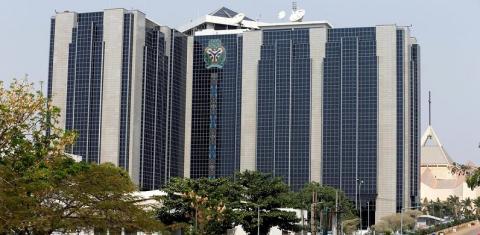
The Civic Media Lab had since August 28 written a Freedom of Information scheme seeking to know how much subsidised foreign exchange the bank had disbursed through channels such as the Forex Intervention Scheme.

The Central Bank of Nigeria has refused to disclose the volume of dollars given out at N305 as well as what sectors and schemes have been benefiting from the N55 difference.
The Civic Media Lab had since August 28 written a Freedom of Information scheme seeking to know how much subsidised foreign exchange the bank had disbursed through channels such as the Forex Intervention Scheme.
According to the Lab, the need to make the FoI request was sparked by comments made by Chairman of Major Oil Marketers Association of Nigeria, Tunji Oyebanji, that he knows no marketer receiving forex at N305 to a dollar.
Mr Oyebanji had made this comment during this year’s Nigerian Oil and Gas Conference and Exhibition in Abuja.
He was responding to claims made at the conference by the then Chief Operating Officer, Downstream at the Nigeria National Petroleum Corporation, Henry Ikem-Obih, that the state-owned corporation was able to save $1.7bn from the Forex Intervention Scheme launched by the CBN and co-managed by the NNPC.
“I don’t know who is getting it at that 305, so, if NNPC is giving some marketers at that rate, I want to believe it is not a transparent thing.
“I don’t know who is getting it,” Oyebanji had said at the time.
In May 2019, FBN Quest, in an analysis, said ‘The CBN’s interbank/official rate (for priority transactions) is currently N307/US$.’
The Civic Media Lab’s FoI was designed to know what these priority transactions entail.
Between 2015 and 2017, the Nigerian Government – ex-President, Goodluck Jonathan’s regime inclusive, gave pilgrims concessionary forex subsidies of N160 to a dollar as against N190 to the dollar at the time; N197 to a dollar at a time when the exchange rate was N297 for a unit of the greenback and N305 when the investor and export window was stabilised at N360.
Thankfully, the President Muhammadu Buhari administration had stopped the concessionary grants in 2018.
However, a source, who made the Hajj trip in 2018, said some state pilgrim boards still subsidised the dollar needs of the religious travellers in their domain.
While these pilgrim concessions held, operators in the gas industry, which is dollar denominated, said in 2017 that they were incurring losses because they received payment for supplies to power generation companies at N305.
Manufacturers across various sectors of the economy also made huge losses as a result of the exchange rate difference between when they made importation orders and when payment was due.